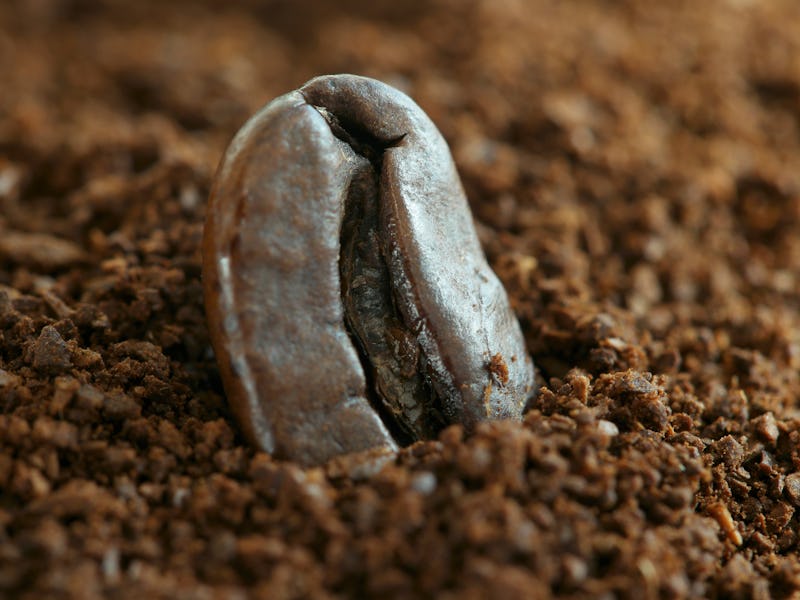Should you store coffee in the freezer? A chemist explains the storage hack
Are the best beans freezing beans?

How to store food is a surprisingly contentious subject. Ask your mom, and then ask your friend: Do apples go in the fridge or on the counter? What about tomatoes? Where do you keep the butter? Chances are that each will give you a different answer — perhaps even opposing answers.
These foods are perishable, but some insist on keeping them on the counter — the reasons can be cultural, but they could also be borne out of scientific understanding (or misunderstanding). Coffee grounds have a stable quality that makes the stuff feel like a room-temperature situation; they are sold to you as such, anyways. That means they should be able to reside either on the counter or in the pantry (but tell this to peanut butter fridge evangelists).
For some, the only way to store coffee is in the freezer. One of my earliest memories is of my parents tendering Zabar’s coffee to and from the freezer every morning, as they still do now.
Brianne Linne, a postdoctoral researcher at the University of Pennsylvania who has investigated the chemistry of coffee mouthfeel, says that in the lab, her team kept beans chilled. So does that mean everyone should put their beans next to the ice cream?
Should I store coffee in the freezer?
The most scientific verdict, according to Linne, is to keep coffee at room temperature.
The logic behind keeping joe in the freezer is about preserving aroma rather than anything to do with longevity. In his 2017 presentation at an annual coffee conference, chemist Christopher Hendon cited the molecular reasoning behind freezing coffee. The Arrhenius equation, he says, states that for every 10-degree Celsius increase, the reaction rate doubles. What makes coffee special is its volatiles or the chemicals that produce its distinct aroma. Likewise, the reaction rate halves for every 10-degree Celsius decrease, so keeping coffee cooler will preserve the smell.
There’s a right way and a wrong way to store java in the freezer. Linne says the best practice would be to keep beans in an airtight container like a Tupperware or Mason jar to keep moisture out. She also recommends batching out the beans and checking each portion individually to ensure it’s completely thawed before use.
But most people don’t have the patience, energy, or attention to inspect beans when making coffee. Not following these rules to a T risks introducing extra moisture, which speeds up the process of the coffee going stale.
“If people are just storing it in a bag that they put a rubber band around... I think in that case, it’s best to just store it on the counter or in the cabinet,” Linne tells Inverse.
“At that point, the moisture you’re introducing is the risk.”
What about ground coffee?
Pre-ground coffee, Linne says, is extremely dry. Dry things want to absorb moisture, so improperly storing ground coffee in the freezer could make it stale even more quickly. In other words, unless you are going to care for it like a house plant, then store your ground coffee on the counter, too.
Linne does sing the praises of whole-bean coffee over ground coffee.
She says that a coffee bean is porous like a honeycomb. During the roasting process, the volatile compounds that create that enticing scent are released into these pores, so once the beans are ground, those aromas waft out. Linne says that grinding fresh beans yourself means there’s a greater surface area holding the volatile compounds since they’re trapped inside. Freshly ground beans equate to maximum flavor.
Does coffee go bad?
From a food safety perspective, no. But as a delicacy that many enjoy for its flavor and aroma, the taste can go stale. Over time, some flavorful compounds created during the roasting process degrade as they’re exposed to oxygen or oxidation. Oxidation reactions can transform some redolent fat-based compounds into a stale or un-coffee-like scent.
Or, if you leave the coffee out in the open the volatile compounds can simply evaporate. This change doesn’t shift the flavor profile, but it does sap flavor altogether.
There’s no risk of getting food poisoning from coffee, whether you keep it in the freezer or at room temperature. Linne keeps whole beans on her countertop and prefers to drink black coffee to get the full flavor profile, in case you were wondering.
CHECK, PLEASE is an Inverse series that uses biology, chemistry, and physics to debunk the biggest food myths and assumptions.
Now read this: Do oranges prevent colds? A scientist debunks the vitamin C remedy